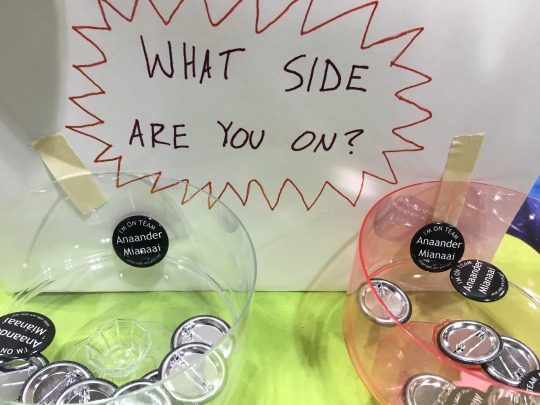On Pretentious Writing
A while ago, I ran across someone talking about a book that, the speaker asserted, you could tell just by reading it that the author expected to get some serious award action out of. The writer obviously was out there trying hard to write super fancy prose and showing off. Where, on the other hand, this other book had Just Plain writing but the story was gripping, and that was so much better.*
I’ve been chewing on that. It struck me because one of the really interesting things about having a lot of people talk about my work these days is that I see quite a few folks say very straightforwardly that I obviously intended such and so an effect, or obviously intended to convey one or another moral or lesson, that it was plain and obvious that I was referring to this that or the other previous work, or to some historical or current event or entity. And often I come away from such assertions wondering if maybe they’re talking about a different book by a different author, that just happen to have the same names.
I’ve also seen quite different assessments of my sentence-level writing, which I find super interesting just on its own. It’s elegant! It’s beautiful. It’s muscular. It’s serviceable. It’s clunky. It’s amateur. Even more interestingly, it’s transparent, or else it’s emphatically not going to please the crowd that valorizes transparent writing. That’s super interesting to me.
So when I see these statements–that obviously a writer set out to make their writing super poetic and fancy in an attempt to gain accolades or prestige, and also the assertion that poetic or fancy writing gets in the way of what’s really important, namely the story, I can’t help but stop and go, Hmm. Very interesting. And to be fair, part of why I find this so interesting is that I, myself, sometimes have these very strong, certain reactions to a book or story. Obviously this writer means X. Obviously they’re reacting to Y. Obviously. And yet, my knowledge of my own intentions, paired with the intentions I’m often credited with (because they’re obviously right there in the text!) along with the often contradictory nature of those obvious intentions, is making me rethink my own reactions along those lines, when I read other writers’ work.
The truth is, while a writer’s intentions and influences are probably discernable in a text, in a lot of cases you kind of need to see the entire context of that writer’s life and thoughts in order to reach an even halfway accurate conclusion about what they obviously intended or were thinking when they wrote it. The more context you have, the better your assessment is going to be–if you’re missing crucial information, your conclusion may seem obvious to you but actually won’t make sense once you put those missing pieces in. And seriously, entire academic careers have been built on assembling such contexts and then using that information to support a particular argument about what some writer meant or intended. We’re talking years of research. None of us is all that likely to have completely understood a writer’s thought process just from having cast our eyes down some pages of their novel, not if they aren’t a writer we already know, or someone whose social context we’re already very familiar with. And most readers aren’t all that familiar with writers’ social context. Why should they be? They have their own to worry about. But not realizing that can lead folks to very sure, very solidly certain immediate conclusions. Conclusions that are also ridiculously off the mark. I’m not meaning to deride, here–as I said, I do it myself. I’m just more aware of it, now my context has changed.
Now, SFF writing is a small world, and I happen to have a casual acquaintance with the writer who was allegedly trying so hard to impress with fancy poetic prose. And you know what, I’ve never, ever heard that writer say any such thing about their intentions. I would, in fact, be very very shocked to hear them say such a thing. It would seem grossly unlike what I know of them, but also, while I can assemble a quick list of writers who have said, in public or private, that they expect award recognition for their work, or that they write in particular ways because they expect (or even hope) that will get them award noms, it’s actually a very short list. And most of those you could guess just by having followed the events of the last few years.
So, where does that come from, the idea that dense, fancy, poetic prose is a bid for award attention? That if you, as a reader, find the prose difficult to process, then that must be because the writer is showing off? Pretentious, even?
I have some thoughts as to where it comes from. But they’re difficult to articulate, so instead I want to ask, what makes prose “transparent”?
Right, transparent prose goes down smooth and easy and doesn’t draw attention to itself. So that way the story can shine through, right?
So, I have two more questions for you to ponder. First, is there something inherent to transparent prose that makes it fade into the background, convey meaning without drawing attention to itself? Or–second question–does the ability of prose to be transparent and easy to read depend on the reader’s experience of it?
It’s kind of obvious that there’s nothing inherent in prose that conveys meaning. I mean, try this:

Wait, maybe you just can’t read that kind of writing. Try this:
e-nu-ma e-liš la na-bu-ú šá-ma-mu
šap-liš am-ma-tum šu-ma la zak-rat
ZU.AB-ma reš-tu-ú za-ru-šu-un
mu-um-mu ti-amat mu-al-li-da-at gim-ri-šú-un
A.MEŠ-šú-nu iš-te-niš i-ḫi-qu-ú-ma
gi-pa-ra la ki-is-su-ru su-sa-a la she-‘u-ú
e-nu-ma dingir dingir la šu-pu-u ma-na-ma
Wait, you still can’t read that? Oh, right, you’d need to know how to read Old Babylonian first. And even if you did know Old Babylonian, you’d likely experience some amount of effort in the reading. The context–linguistic, historical, social–that would have made Old Babylonian like water to a fish to a native speaker of it, is alien to us and we have to assemble the bits and pieces that give this text meaning very carefully and consciously. Even if this was “transparent” poetry in Babylon, it will never ever be to us.
This is a particularly flagrant example of what I’m talking about, but it operates on a smaller scale even within one’s own native language. We learned to read so early, we often forget that things we seem to just absorb at a glance were incredibly difficult feats of reading when we were in Kindergarden. And as science fiction readers, we’ve learned just by reading a lot of SF and F how to read it. Other, perfectly skilled readers can often be baffled by a SF text, and attempts to read non-SF as though it was can lead to some really odd results and misunderstandings.
And SFF is full of subgenres, it’s written by a huge variety of people with maybe some reading history in common but not all, and all of those subgenres have their own conventions and internal expectations, and if you come up against them not knowing about them they’re going to seem weird or clunky to you.
So when you find prose “fading into the background” and other prose requiring more effort, more attention to the sentences themselves, is that inherent in the writing itself, or is that a matter of your reading history coming up against a work written by (or for) someone with a very different reading history?
Why, when that happens, is it because the writer is “pretentious” or trying to show how smart they are?
I’m also kind of side-eyeing the idea that first off, plot can somehow manifest in a written work in any other way than the actual words on the page. I mean, no words, no story. Arrange the words differently, and the story is changed. There’s no separation there, words and story are the same thing. A story told plainly and a story told in dense, elaborate, poetic prose are very different experiences. There is not some Platonic form of the story that elaborate prose is concealing, that exists beyond the sentences, that if only we could free it we would have the Pure Essence of Story stunning us with its perfection. The sentences are the story.
And there’s no objective standard for “easy to read.” Sure there are readability indexes but they’re pretty much useless, especially for fiction. And my “easy to read” is likely not your “easy to read.” Not because one of us is smarter or a better reader, but because we have different reading histories and different preferences. Different contexts.
And you know what? Enjoying dense elaborate prose, enjoying poetic writing that draws attention to the fact that, yes, these words are building the story, or writing that prompts you to stop and admire this or that construction, that’s a perfectly legitimate thing to enjoy in fiction. Lots of people enjoy it. I do myself sometimes. Not because I’m smarter than folks who don’t, but because that’s a thing I like. Some folks really love watching sportsball and admiring the fabulous moves of the players. It’s all invisible to me, I know when the puck goes into the goal and that’s about it, right? Okay, I’m better with baseball, I’ve watched way more baseball in my lifetime and I can enjoy the nuances of that more than other games. But none of that is because I’m stupid, or hate sports. It’s because I spent my free time doing other things. So I tend to enjoy baseball more than other sports. Same with different kinds of writing.
So why, when it happens in fiction, when a reader runs across dense poetic prose that they aren’t processing effortlessly, do some folks assume that it’s happening because the writer wants to show everyone how smart they are? Why assume arrogance or pretension? And why assume there’s only one kind of good writing, and that’s the kind you yourself can easily read and like? It’s worth thinking about, especially the next time you read a thing with fancy sentences and immediately assume the writer is just showing off.
Or, really, the next time you’re tempted to assert that obviously some writer was trying to say or do a particular thing.
____
*In case you are tempted to assume that I am writing this in reaction to someone criticizing my own prose as too poetic and award-baity, I will give you a bit more context–the novel being praised as transparently written so that it’s wonderful story could shine through was, in fact, Ancillary Justice.

















